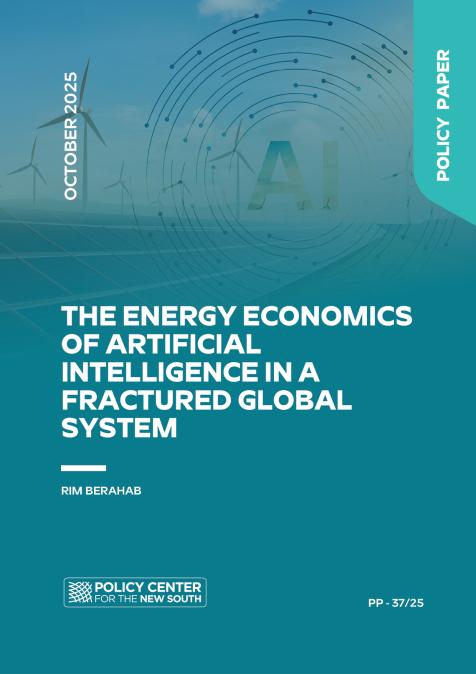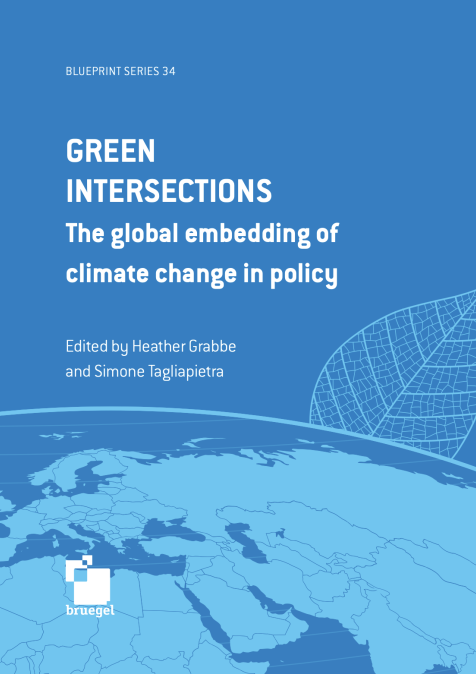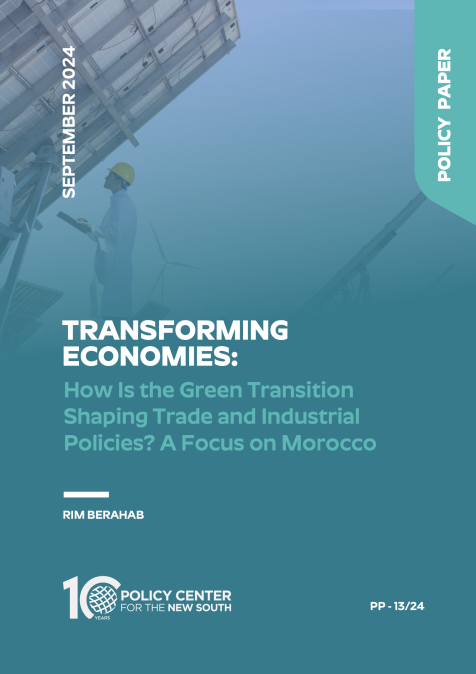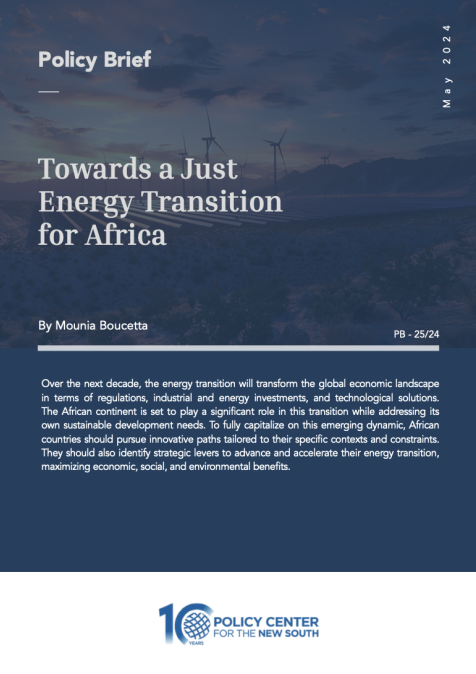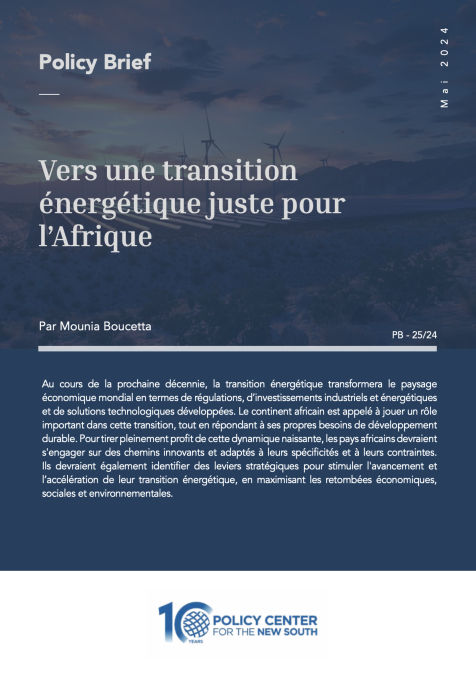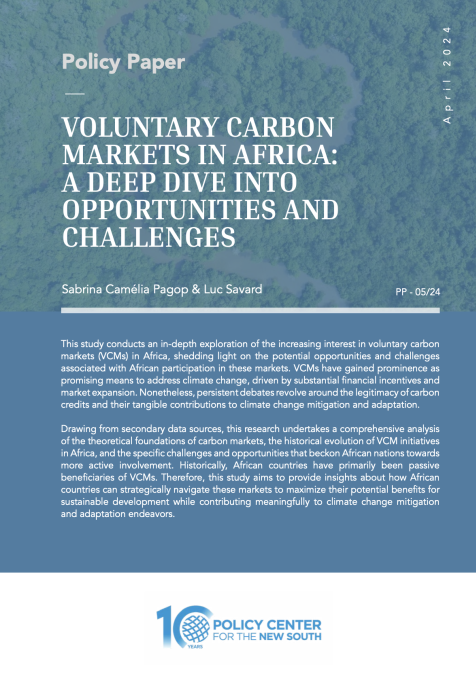Publications /
Policy Paper
Artificial intelligence (AI) is rapidly emerging as both an energy optimizer and a structural source of energy demand. While AI promises efficiency gains in forecasting, grid management, and emissions reduction, its expansion is already reshaping electricity systems: data center consumption could more than double by 2030. Beyond this techno-economic duality lies a deeper challenge: the sovereignty of digital and energy systems. AI rests on highly concentrated supply chains of chips, compute infrastructure, and critical minerals, as well as on access to abundant, low-carbon electricity. This concentration creates new dependencies and asymmetries, reinforcing the strategic control of a handful of actors. For Africa, the stakes are particularly high. The continent holds significant reserves of cobalt, manganese, rare earths, and other inputs indispensable to batteries and semiconductors, yet faces chronic electricity deficits, fragile grids, and limited compute capacity. Without deliberate investment in infrastructure, regional integration, and industrial upgrading, Africa risks remaining confined to raw-material supply while depending on foreign actors for digital infrastructure and cloud services.

